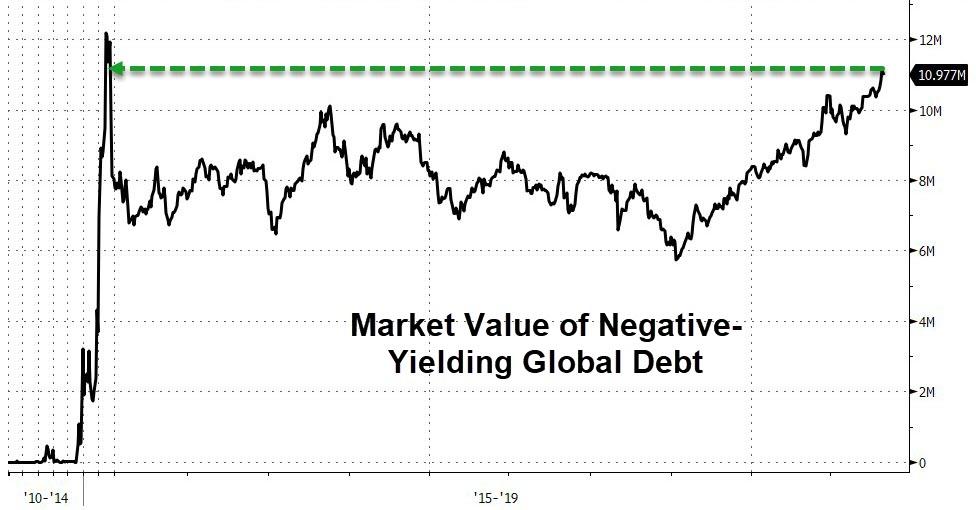Excerpted from Jim Grant’s Barron’s op-ed: “The World Created By Upside-Down Interest Rates”,
The quoted value of negative-yielding debt the world over hit $11 trillion the other day, the highest such total since September 2016 and almost double the volume in place last October.
These are remarkable facts. You can as easily imagine a five-pawed St. Bernard or a suitable candidate for public office as you can the situation of a lender paying a borrower for the privilege of extending a loan.
The institution of negative yields serves to remind us that radical monetary policy only begets more radical monetary policy.
…
But the central bankers misjudged the human animal. Confronted with a novelty unprecedented in 4,000 years of interest-rate history (negative money-market interest rates are nothing new, but substantially negative note and bond yields are a post-2000 B.C. first), people not unreasonably suspected that something was wrong. And when something is wrong, you save more, not less.
…
Five years into the negative rate experiment, and a decade on in radical monetary improvisation, the central bankers are looking for a way back to normalcy…
But as Grant asks and answers: Do you wonder who’s buying all of the subzero debt?
Peter Chiappinelli, a portfolio strategist at GMO, Boston, says he has given it considerable thought. In a sense, the buyer is the aforementioned Global Agg index, though the index hardly buys itself.
The mystery buyer, Chiappinelli says he has come to see, “is anybody who owns a passive mutual fund tied to the Global Agg. Or anyone who might now own a passive ETF tied to a global bond index. Or anyone who owns a popular target-date fund that has passive exposure to global bond indexes. In other words, millions of Americans.”
Ten-year Treasurys may not yield much, but they deliver something like 240 basis points more than nothing. For that matter, gold bullion, yielding only nothing, nonetheless yields more than $10.6 trillion of notes and bonds that yield less than nothing. It’s all about relative value.
via ZeroHedge News http://bit.ly/2Z2Sfwd Tyler Durden

